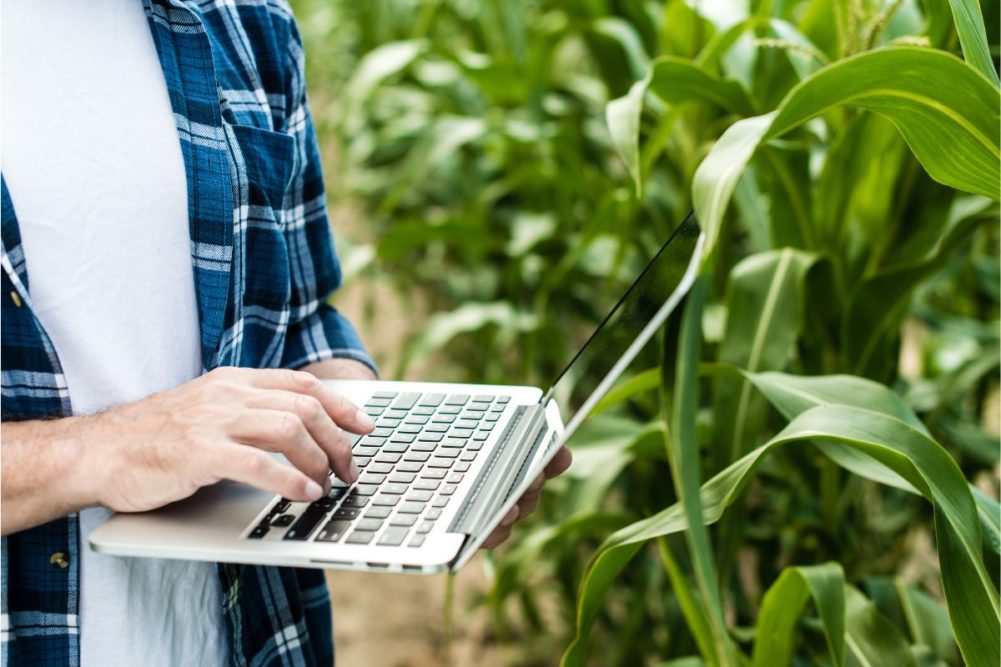
Corn, one of the most widely grown crops in the world, has always been a cornerstone of agriculture. With the rise of modern technology, the corn industry has undergone significant changes, becoming more efficient, sustainable, and productive. From advanced farming techniques to high-tech processing and distribution systems, technology has reshaped the way corn is cultivated, processed, and consumed. Here’s how technology is shaping the corn industry today.
Smart Farming and Precision Agriculture
Modern farming techniques, such as precision agriculture, have revolutionized the way corn is grown. Technologies like GPS, drones, and sensors help farmers monitor their fields with incredible accuracy.
- GPS-Guided Equipment: Tractors and other machinery equipped with GPS ensure precise planting, fertilizing, and harvesting. This reduces waste and improves yield.
- Drones: Drones provide aerial views of cornfields, helping farmers identify issues like pests, diseases, or water shortages early.
- Soil Sensors: These sensors measure moisture and nutrient levels in real time, ensuring the right amount of water and fertilizers are used.
Biotechnology and Genetic Advancements
Biotechnology has played a key role in improving corn varieties. Genetically modified (GM) corn is designed to resist pests, tolerate drought, and grow in challenging climates.
- Insect-Resistant Corn: GM corn reduces the need for chemical pesticides, making farming more sustainable.
- Drought-Tolerant Varieties: These help farmers grow corn in regions with limited water availability, ensuring consistent production.
- Nutritional Enhancements: Some corn varieties are engineered to have higher nutritional value, benefiting both consumers and livestock.
Automation in Corn Processing
Processing corn into various products, such as flour, oil, and biofuel, has become faster and more efficient thanks to automation.
- Advanced Machinery: Automated sorting, cleaning, and grinding machines ensure high-quality corn products.
- Energy-Efficient Systems: Modern processing plants use energy-saving technologies to minimize environmental impact.
Role of Data and Artificial Intelligence
Data and artificial intelligence (AI) have become powerful tools in the corn industry.
- Yield Prediction: AI analyzes data from weather patterns, soil conditions, and crop health to predict yields and suggest improvements.
- Supply Chain Optimization: Data helps streamline the movement of corn from farms to markets, reducing waste and ensuring fresh delivery.
- Market Insights: Farmers and producers use AI to understand market trends, helping them decide the best time to sell their produce.
Sustainable Practices with Technology
Sustainability is a key focus in the corn industry, and technology is driving greener practices.
- Precision Irrigation: Systems like drip irrigation reduce water usage by delivering water directly to the roots.
- Eco-Friendly Fertilizers: Smart technology helps farmers use the exact amount of fertilizer needed, preventing overuse and protecting the environment.
- Carbon Capture: Some processing plants are using advanced technology to capture and store carbon emissions, contributing to climate change mitigation.
Corn and the Biofuel Revolution
Corn is a major source of biofuel, particularly ethanol, which is used as an alternative to fossil fuels.
- Efficient Production: Advanced fermentation and distillation technologies make ethanol production more efficient.
- Second-Generation Biofuels: Researchers are developing ways to use corn stover (stalks and leaves) to produce biofuels, reducing waste.
Digital Marketing and E-Commerce
Technology has also transformed how corn products are marketed and sold.
- Online Platforms: Farmers and producers now sell corn and corn-based products directly to consumers through e-commerce platforms.
- Digital Traceability: QR codes and blockchain technology allow consumers to trace the origin of their corn products, promoting transparency and trust.
Future Innovations
The future of the corn industry looks promising with continuous technological advancements. From vertical farming to AI-driven farming robots, innovations will further increase productivity while minimizing environmental impact.
Conclusion
Technology has become an integral part of the corn industry, improving efficiency, sustainability, and profitability at every stage—from planting to processing and distribution. These advancements not only benefit farmers and businesses but also ensure that consumers receive high-quality, affordable corn products.
As technology continues to evolve, the corn industry is poised to play an even bigger role in feeding the world sustainably and meeting the growing demand for food, fuel, and other essential products.
